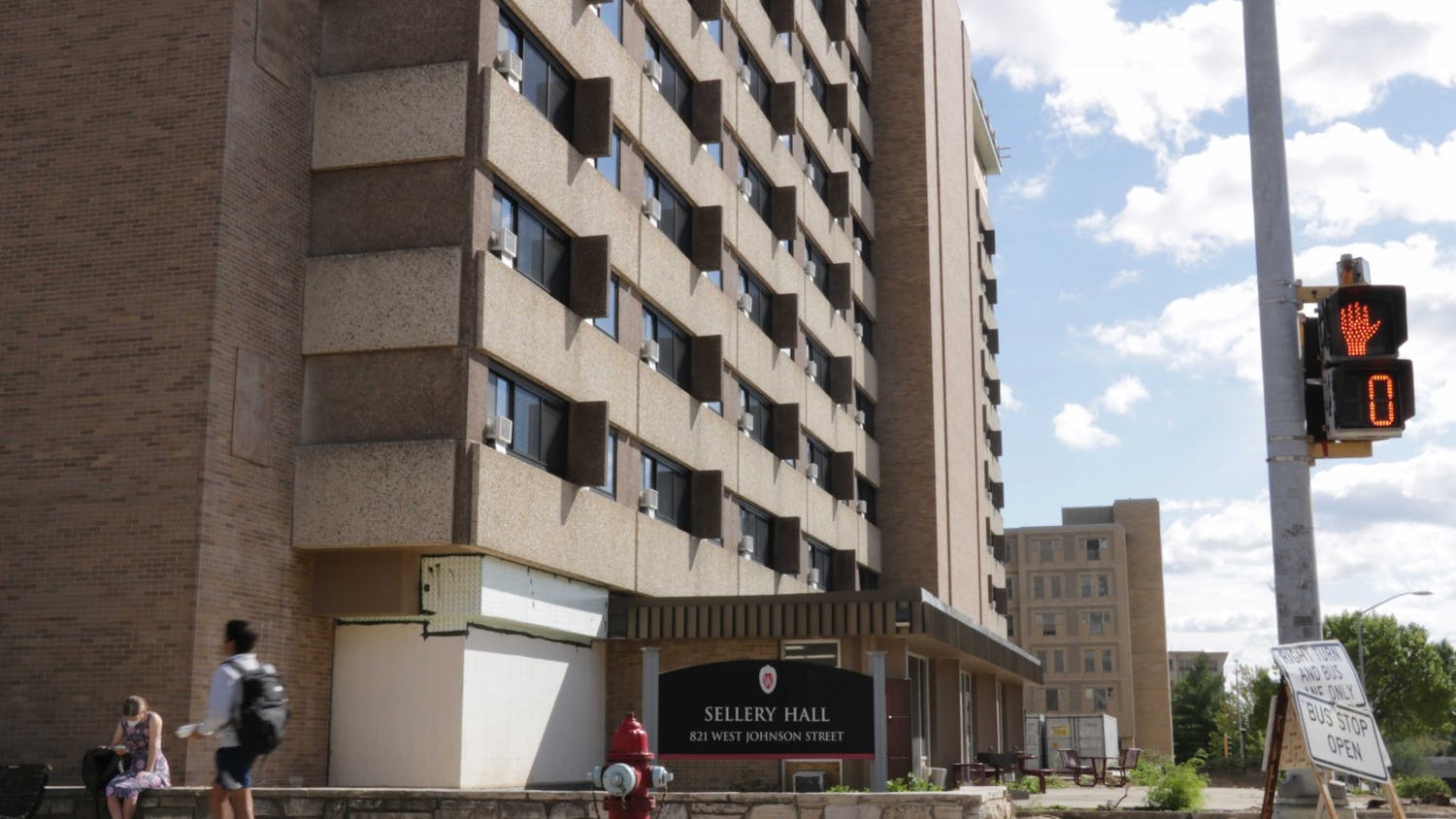[Editor's note: Students' names have been changed.]
UW-Madison sophomore Erik knows all too well about the pitfalls of illegal downloading. As a freshman living in a university residence hall, he received notice from the university that his Internet privileges could be revoked as a result of a cease-and-desist letter sent to the university from the Recording Industry Association of America.
\I had gone home for the weekend, and I came back and my Internet connection was not working,"" Erik said. ""I checked my e-mail, and ResNet had sent me a warning saying that I had been caught by the RIAA for illegal downloading. It was basically a cease-and-desist letter.""
As the digital music world continues to evolve and expand, the RIAA has struggled to keep illegal downloading at bay. In its latest effort to curb online copyright infringements, the industry has stopped imposing pre-lawsuit notification letters and implemented the Digital Millennium Copyright Act.
This new system benefits UW-Madison students, who no longer have to worry about receiving letters encouraging monetary settlement. But students should not be surprised to receive more cease-and-desist letters under the DMCA, which sends letters to students who download one or more files illegally.
""We rely upon the university to follow up with the individual in question and ensure that the infringing material is taken down,"" RIAA spokesperson Liz Kennedy said.
RIAA CEO Mitch Bainwol explained the association's switch from lawsuits to graduated responses in a December 2008 letter to the House and Senate Judiciary and Commerce Committees.
""When we originally initiated the litigation program some five years ago, we made clear that lawsuits were not our preferred response,"" Bainwol said, adding that the RIAA had no other alternatives. ""A whole generation of kids was growing up with the practice and concept that it was okay to take our music without paying for it.""
According to Bainwol, just months after the RIAA transitioned lawsuit notices to DMCA cease-and-desist letters, they saw more students notified than in the previous five years.
""We are delighted that circumstances have evolved to the point where we could transition from lawsuits to these ISP graduated response programs,"" Bainwol said.
Although the RIAA has seen more success with the new process, the Division of Information Technology continues to see its operating costs rise. In response to a survey from the Congressional Subcommittee Survey of University Network and Data Integrity Practices, the university stated that more than $300,000 has been spent on copyright infringement and remediation over the past several years alone.
""The notices come about weekly,"" DoIT Communications Manager Brian Rust said. ""We have received many of them over the years. We had to set up a standard procedure, and we have staff that is hired to handle the uptick in notices like this along with other accusations of misuse in the university's network.
""Higher education seemed to be the target for the pre-settlement notices, because it was pretty easy to isolate students who were living in university housing and the university network that they were using,"" Brian Rust commented. ""The RIAA can isolate the exact IP address, so they can tell if you're living in Adams Hall in a particular room and you set your computer to do file-sharing. You're busted.""
Rust also made it clear that student identities are not revealed in the process.
University Housing recently enacted a program by which any user identified by a DMCA notice will face disciplinary action. First-time offenders have their networks quarantined to UW-specific websites until they declare that the material in question has been removed and they understand appropriate use policies and copyright laws.
""I had to go through a series of things to read and check and watch a video telling me about what downloading is illegal,"" Erik said. ""The whole thing took me 15 minutes to go through.""
A second offense leads to a minimum four-week quarantine and a meeting with a residence hall supervisor. The Office of the Dean of Students is notified as well. The final response includes a network quarantine for the remainder of the academic year.
Erik's experience has caused him to become more vigilant in his downloading practices. ""I read all the comments now, because generally the comments have indications if it's being tracked or if it has a virus or something.""
Even though some students seem to be unphased by the recent surge in DMCA warnings, the recording industry has seen positive results from their methods. Digital revenues surpassed $3 billion last year, which accounted for over 30 percent of total industry revenues. This is a huge leap when compared to the $180 million that was generated in 2004.
""We are trying to do all we can to address piracy, most importantly [to] educate fans about the many legal, affordable options available to them,"" Kennedy said.
""Every student in the country has access to affordable, legal music through innovative music industry-supported models like that offered through MySpace Music, Amazon MP3 and Rhapsody.""
UW-Madison graduate student Thomas Kuech believes that the digital system itself has to change before illegal downloading will come to an end.
""If the recording industry got together and put together a better alternative, it would lessen the chance that I would download illegally,"" Kuech said. ""Downloading gives you the option to choose between way more options than you would find at your average Best Buy. You can choose different bit rates, live albums, rare tracks and it's a lot faster than anywhere else.\






